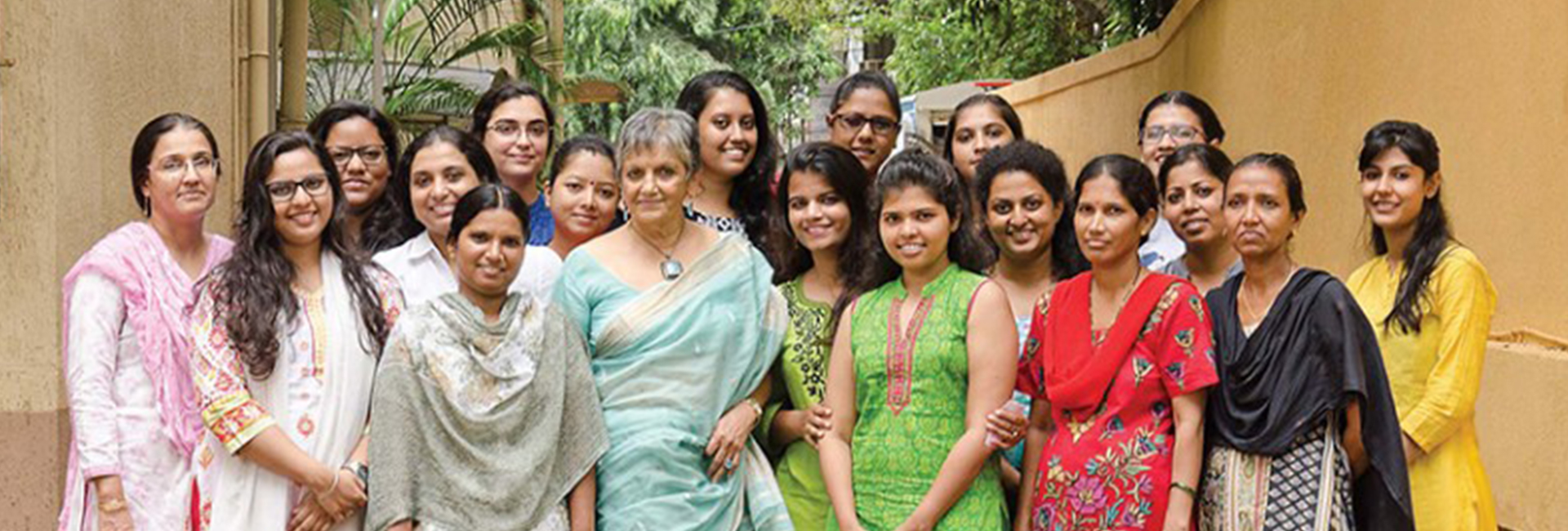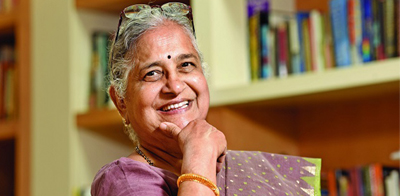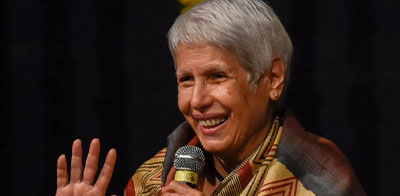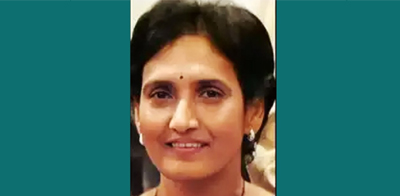Married at the tender age of twenty, Flavia Agnes found herself alone in a new city with an abusive husband. When she tried for divorce, the proceedings took much longer than anticipated. As a Christian, Agnes was not entitled to ‘divorce on the grounds of cruelty’ under the Christian Marriage Act and had to request a judicial separation.
Instead of breaking her down, the incident gave a purpose to her life. She had just completed her SSC prior to her marriage. Determined to make a difference Flavia went on to pursue her higher studies earning an LLM degree and an MPhil in Family Law. It took 13 years for her to finally get a divorce.
At a panel discussion on women’s empowerment at IIT Bombay Agnes said:
We have very good laws which is supposed to help women but we are lacking in implementation.
Since 1988, Agnes has been a practicing lawyer at the Mumbai High Court. Her own experiences of domestic violence led her to focus on laws related to women’s rights.
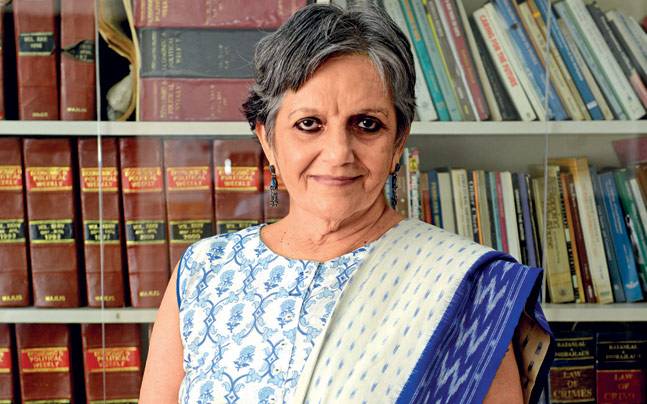
Flavia Agnes
Supporting victims through Majlis
Agnes co-founded Majlis, a public trust and NGO in 1990. Since its inception the organisation has been campaigning for and providing legal representation for women on issues like matrimonial rights and child custody. Majlis has provided support to close to two lakh women.
The legal journey is often long drawn and on top of that there are very few organisations in the country that provide victim support. With more such organisations many more women would get justice.
In 2018 Flavia was honoured with the Bharatiya Manavata Vikas Puraskar for her work with marginalized and disenfranchised women and children, and for her contributions in human rights law and gender studies in India.
Global Feminism Project
Flavia Agnes is part of the Global Feminism Project that was launched at the Institute for Research on Women and Gender (IRWG) at the University of Michigan in 2002. It’s is an oral history project led by a team of researchers that collect interviews of feminist activists representing seven countries including Poland, China, Brazil, the United States, Nicaragua, Russia and India.
The project has produced numerous publicly available resources including teaching modules, bibliographies, and the archive of video interviews.
Also Read: Entrepreneur Biswanath Patnaik donates Rs. 250 crore to build Britain’s first Jagannath Temple
